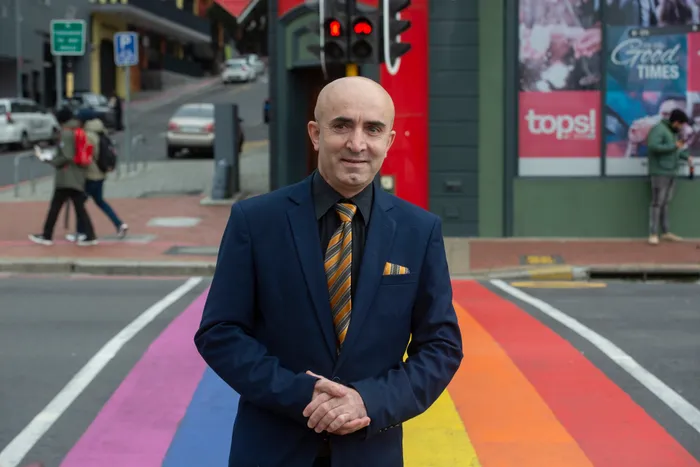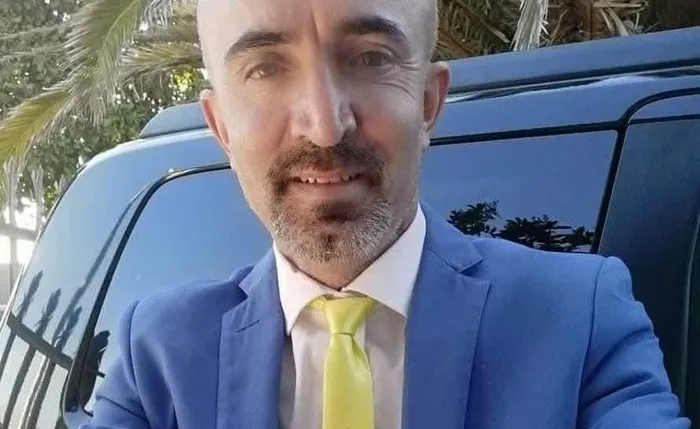Legal troubles for Cape Town politician over 'defamatory' posts about Kunene, McKenzie

Mehmet Vefa Dag, President of the Truth and Solidarity Movement.
Image: Armand Hough/African News Agency(ANA)
Controversial Cape Town politician Mehmet Vefa Dag is in trouble again for his online postings - this time for badmouthing president of the Patriotic Alliance, Kenny Kunene, and Arts and Culture minister Gayton McKenzie, who obtained an interim interdict against him in the Western Cape High Court.
Dag was prohibited from making further defamatory statements, such as alleging that Kunene and McKenzie were involved in murders or were “gang or mafia leaders”.
Kunene and McKenzie are pursuing the case due to what they call “a campaign of defamation that has harmed their reputation". This includes the fact that Dag called them “pansies” - a terminology they deemed to be defamatory.

Cape Town politician Mehmet Vefa Dag was provisionally interdicted by the Cape High Court from badmouthing Kenny Kunene and Gayton McKenzie.
Image: Facebook
Dag is the president of the Truth and Solidarity Movement, a civil society organisation which is said to be dedicated to promoting accountability, transparency, and ethical governance. He has been in hot water in the past for other online postings. Dag opposed this application but he had admitted that he was the author of the statements complained about.
He submitted, however, that the applicants do not have good reputations, and therefore, his statements did not infringe their right to a good name. In the alternative, he relied on truth and public interest, fair comment, and reasonable publication.
Acting Judge DJ Cooke found that certain, but not all, of the statements were defamatory. The judge examined the various posts made by Dag, including that he referred to the applicants as “mafia leaders” as well as public statements made by him that they are responsible for “tender fraud”, corruption, theft of public funds, or enriching themselves through unlawful means.
In his response to this, Dag stated that his comments of tender fraud related directly to the applicants’ public roles and their oversight of public funds.
The applicants also asked for an interdict restraining Dag from stating that they are unfit for their public offices due to alleged involvement in murder or organised crime and for calling Kunene “the most dangerous criminal in SA”.
Their gripe at being called “pansies” also came under the judicial spotlight, with Dag not denying it, but stating that it came with the political territory they were in, as politics “is not a tea party”. In his defence, he suggested that the word he used was not “pansy” but rather “phantsi” (down with).
Dag argued that the statements published by him were not defamatory of the applicants because they already had a poor reputation. He told the court that the harm to him, and more importantly to the public interest, if the interdict is granted, is severe and irreparable.
He contended that the interdict would gag a public advocate from commenting on matters of corruption and governance, effectively granting public officials a licence to operate without public scrutiny. He asserted that this would create a chilling effect that extends far beyond this case.
The applicants, on the other hand, emphasised that they are senior political figures who have sought to rebuild their lives after previously being incarcerated. Kunene and McKenzie pointed to the fact that they are successful businessmen, motivational speakers, and respectful members of the community.
The court meanwhile issued the interim interdict barring Dag from badmouthing the applicants, pending a further application which Kunene and McKenzie aim to launch against Dag, when the issues will be ventilated during a trial.
The interim order will lapse if the intended further case is not instituted within 20 days. Dag indicated that he will call his own witnesses during that trial to substantiate his allegations.
Related Topics: